Endocrinologist is the name of the profession of doctors who deal with the health of the human endocrine system. Endocrinology is the science of the functioning of endocrine glands that produce substances and secrete them directly into the blood. Disorders of the endocrine glands cause endocrine abnormalities. Too little or too much concentration of particular hormones can cause problems in daily functioning and diseases.
Many diseases are associated with abnormalities of hormones that, when secreted locally or into the bloodstream, affect the body and its functioning. Hormones affect the work of most, if not all, of our body's organs. Hormone disorders can, therefore, affect many abnormal conditions, and detecting the cause with an endocrinologist can be the first step to effective treatment.

The endocrine system and how it works is a vast medical topic that endocrinologists deal with. Their role is to see if there are any abnormalities in the endocrine system, which can be responsible for various diseases and conditions that have occurred in patients.
Hormones affect many aspects of human health, and their malfunction can cause many symptoms. So, let's explain the most important threads related to endocrinology to understand what endocrinologists pay attention to when examining their patients. Understanding the physiology of hormones and their importance to human health is beneficial.
Various organs secrete hormones, and every hormone has different functions and specific effects on the body. One area of importance to the endocrinologist is the hypothalamus and its associated pituitary hormones. The hypothalamic-pituitary-adrenal (HPA) axis![]() is a system that allows the control of several hormones. Hormones released from the hypothalamus circulate to different parts of the brain. In addition, the system is responsible for other hormones in the body, adjusting their production level in the adrenal glands. The hypothalamus produces many types of hormones, including dopamine
is a system that allows the control of several hormones. Hormones released from the hypothalamus circulate to different parts of the brain. In addition, the system is responsible for other hormones in the body, adjusting their production level in the adrenal glands. The hypothalamus produces many types of hormones, including dopamine![]() and oxytocin
and oxytocin![]() .
.
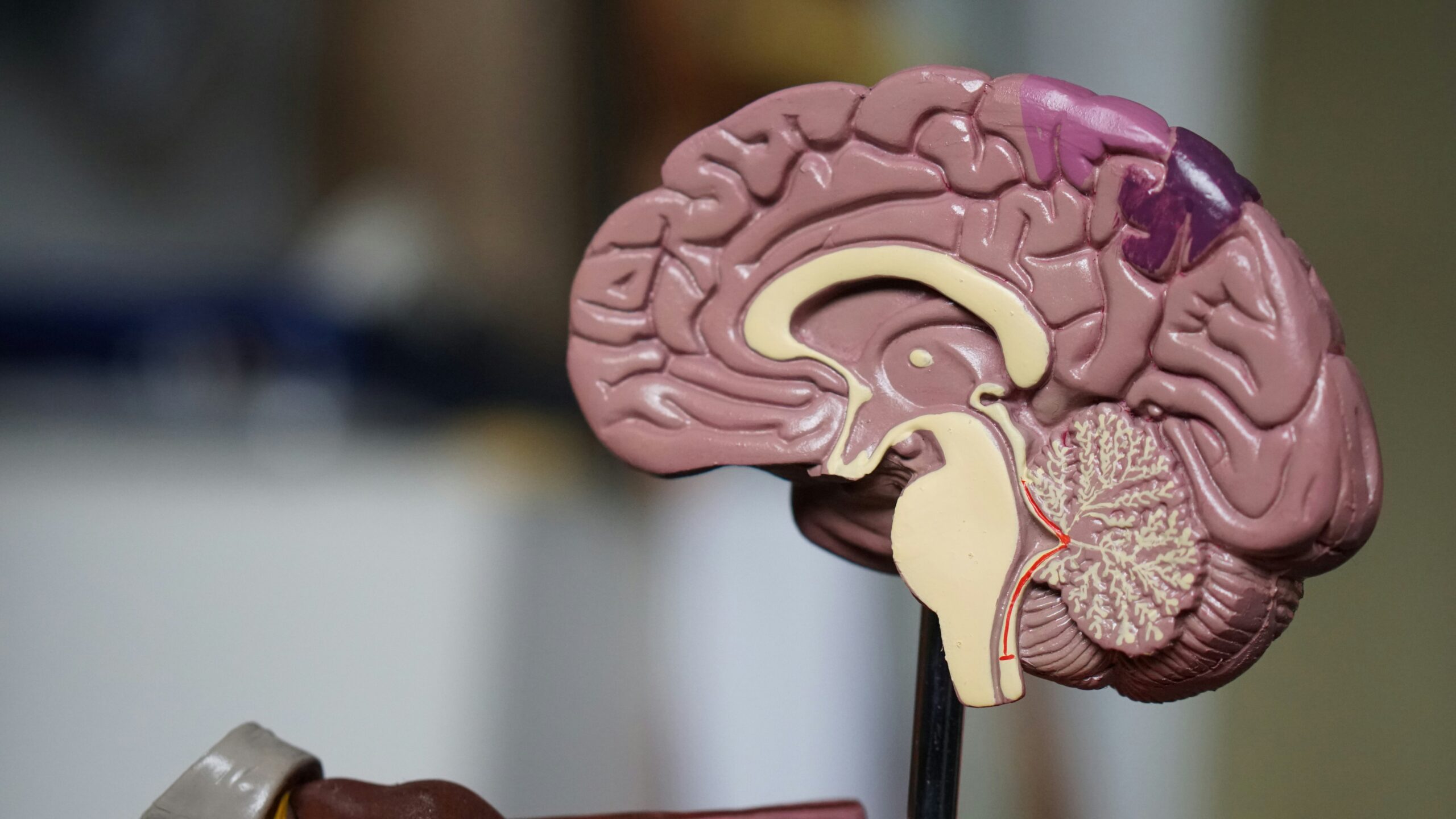
The lateral anterior part of the hypothalamus secretes dopamine, a chemical compound necessary for adequately functioning in various areas of the human body. Dopamine's action in the body can be divided into its effects on the nervous system and outside the nervous system. Dopamine inside the brain acts as a neurotransmitter whose primary action is the control of feelings and emotions. Other areas affected by the dopamine hormone are the gastrointestinal tract and the cardiovascular system.
Oxytocin is an important hormone. It is also a neurotransmitter involved in childbirth and breastfeeding. In women, it causes contraction of the uterus and the muscles of the milk ducts. Oxytocin is also associated with empathy, sexual activity, and relationship building. Proper oxytocin levels benefit the treatment of many conditions, including depression, anxiety, and intestinal problems.
The thyroid is a small gland located under the larynx. Hormones produced by the gland include thyroxine (T4)![]() and triiodothyronine (T3)
and triiodothyronine (T3)![]() . The mechanism that regulates thyroid hormone levels begins in the hypothalamus. The hypothalamic axis produces various types of hormones, which affect the levels of hormones produced in the thyroid. The thyroid is important for metabolism regulation. It helps regulate many bodily functions by continuously releasing constant hormones into the bloodstream.
. The mechanism that regulates thyroid hormone levels begins in the hypothalamus. The hypothalamic axis produces various types of hormones, which affect the levels of hormones produced in the thyroid. The thyroid is important for metabolism regulation. It helps regulate many bodily functions by continuously releasing constant hormones into the bloodstream.

Thyroxine, produced by the thyroid gland's follicular cells, significantly impacts metabolic processes. Among its most essential functions are glucose absorption and fat breakdown. The hormone is also involved in lactation in women and regulates fertility. Thyroxine is, therefore, necessary for the reproductive system. It influences the work of the sex glands, which indirectly accounts for the reproductive process.
FT3 is a hormone that affects the body on many levels. It affects the functioning of the nervous, muscular, and digestive systems, as well as fat and energy metabolism. Testing the level of this hormone is fundamental when thyroid disease is suspected. The ratio of FT3 to FT4, which some endocrinologists use, helps determine whether thyroid hormone conversion is going well.
The pancreas is a colonic glandular organ located in the upper abdominal cavity. The product of the exocrine part of the pancreas is pancreatic juice. In addition to teo, the endocrine part of the pancreas produces several critical pancreatic hormones responsible for various processes. The most essential pancreatic hormones are glucagon![]() and insulin
and insulin![]() .
.
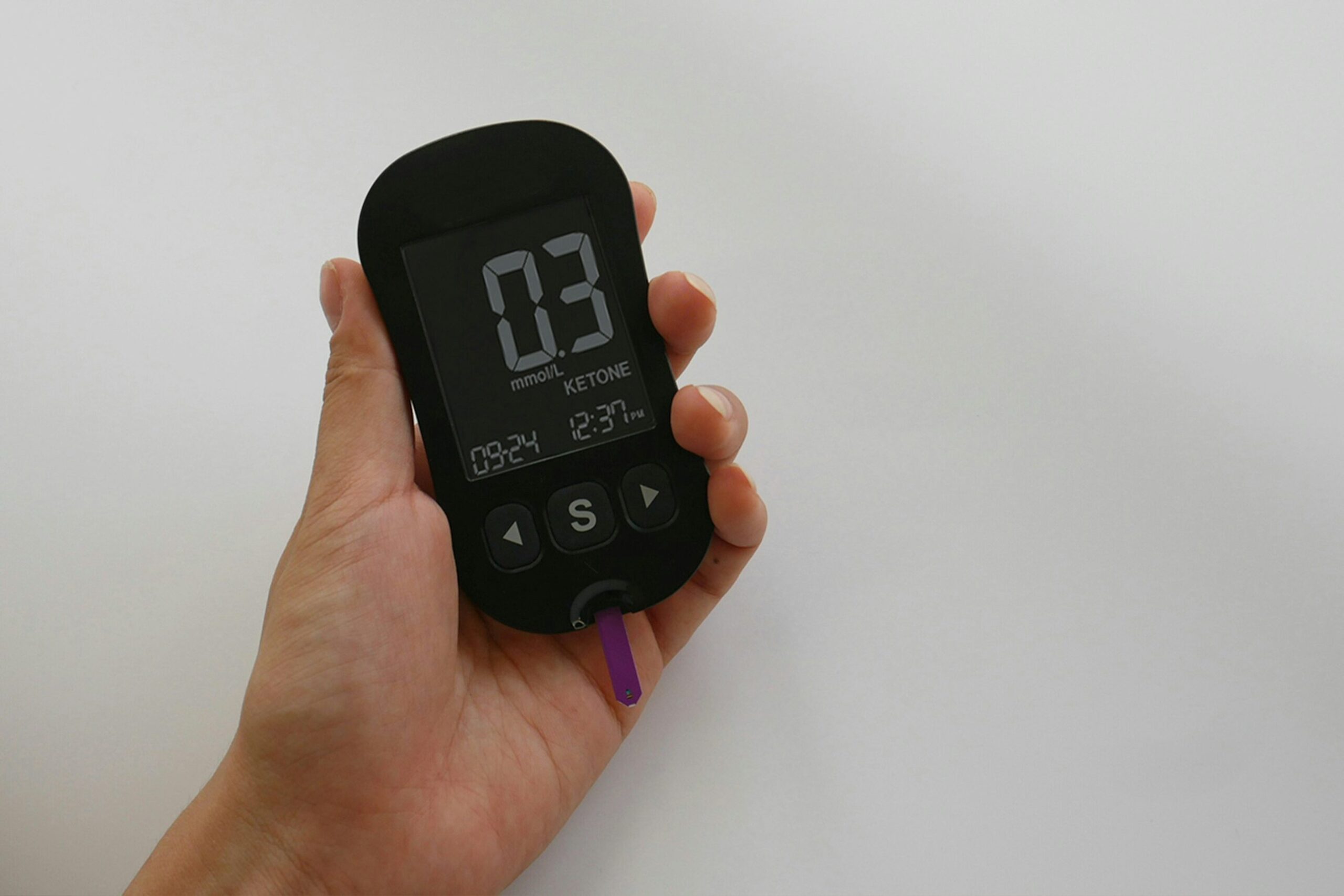
Glucagon is a polypeptide hormone that stimulates an increase in blood glucose levels. This hormone acts opposite to insulin by increasing blood glucose concentration by releasing it from liver glycogen and increasing its formation from various precursors such as amino acids. Pancreatic hormones are, therefore, responsible for normal blood sugar levels, and glucagon is used to treat hypoglycemia.
The peptide hormone lowers blood sugar. Insulin transports energy from food from the blood into cells, lowering blood glucose levels and nourishing cells. Glucagon and insulin work in opposite directions. Insulin also can reduce the glucose concentration in the blood and is therefore used to treat diabetes. In a healthy person, insulin works with glucagon to maintain an adequate level of energy in the body.
The adrenal glands are two organs. They consist of a cortex that secretes steroid hormones and a medulla that secretes catecholamines. The adrenal glands are essential in the body because the hormones they secrete enable the response to both physical and mental stress.

Adrenaline![]() is also known as the fear, fight, and flight hormone. Its ejections into the blood give us energy for action. The substance mobilizes the body to react quickly in case of danger. It causes a noticeable increase in strength and performance and increased awareness in stressful situations. However, overexposure to adrenaline can harm health.
is also known as the fear, fight, and flight hormone. Its ejections into the blood give us energy for action. The substance mobilizes the body to react quickly in case of danger. It causes a noticeable increase in strength and performance and increased awareness in stressful situations. However, overexposure to adrenaline can harm health.
Cortisol![]() is a steroid hormone. Among other things, it regulates blood pressure and the work of the immune system. The primary function of cortisol is to increase glucose concentration in the blood to stimulate the body. The hormone is also called stress hormone because it provides more energy in situations where we are exposed to physical or emotional stress.
is a steroid hormone. Among other things, it regulates blood pressure and the work of the immune system. The primary function of cortisol is to increase glucose concentration in the blood to stimulate the body. The hormone is also called stress hormone because it provides more energy in situations where we are exposed to physical or emotional stress.
In a woman, the ovaries are located on either side of the womb. They are regarded as the developmental counterpart of the testes. The ovaries have two main functions in the female body. The organs produce sex hormones and are the site of egg cell production and maturation. Women naturally have two ovaries, which are responsible for the production of hormones and reproductive cells. Among other things, they produce estrogen![]() .
.

Estrogen is a crucial hormone for women that affects sexual characteristics and fertility. Men also produce these hormones but in smaller amounts. Estrogens are responsible for the proliferation of the mammary gland, and they also affect the proper functioning of the uterus and the health of the vagina and vulva. In addition, it supports bone development and the cardiovascular system.
The testes play a key role in carrying out the sexual and reproductive functions of the body in men. In addition to sperm, the testes also produce male hormones. The primary androgen hormone produced in the testicles is testosterone![]() , and estrogen is also produced in the testes.
, and estrogen is also produced in the testes.
It is the male sex hormone. It plays an important role in proper sexual function. The hormone is responsible for developing male genitalia, muscle mass gain, fat distribution, tone of voice, and the development of male hair type. In women, testosterone affects libido levels and the proper functioning of the ovaries.
Some symptoms may suggest a hormonal problem, in which case a visit to an endocrinologist is necessary. An endocrinologist will perform tests on the work of the organs that produce hormones. Many various diseases and conditions can be related to abnormal hormone secretion. The most common cases include the following diseases:

Hypopituitarism is included in this group. Pituitary insufficiency is a symptom that develops when the body lacks pituitary hormones or when the gland secretes them in too small amounts. The deficiency may involve one or several hormones. The most common disorders result from too low levels of growth hormone. Cancer can cause hypopituitarism.
Thyroid diseases can be associated with hypothyroidism. Hashimoto's disease![]() can cause permanent damage to the thyroid gland and result in hypothyroidism. Among the most common symptoms of Hashimoto's are menstrual disorders, mainly irregular cycles. In addition to excessive fatigue and lethargy, abnormalities in the thyroid gland may be involved. Hyperthyroidism, on the other hand, can cause severe disorders, including cardiovascular disorders, and contribute to myocardial infarction.
can cause permanent damage to the thyroid gland and result in hypothyroidism. Among the most common symptoms of Hashimoto's are menstrual disorders, mainly irregular cycles. In addition to excessive fatigue and lethargy, abnormalities in the thyroid gland may be involved. Hyperthyroidism, on the other hand, can cause severe disorders, including cardiovascular disorders, and contribute to myocardial infarction.
the first case is an endocrine disorder caused by adrenal insufficiency. Damage to the adrenal glands disrupts hormone production, resulting in Addison's disease![]() . It is a condition in which the adrenal glands fail to produce hormones, mainly cortisol, which is essential for life.
. It is a condition in which the adrenal glands fail to produce hormones, mainly cortisol, which is essential for life.
Cushing's syndrome![]() , on the other hand, is a spectrum of disorders resulting from an overproduction of glucocorticosteroids produced by the adrenal glands. Diseases of the adrenal glands disrupt the body's water and electrolyte balance and the body's resistance to stress and infection decreases. Increased blood sugar and heart disorders can also be common symptoms indicating abnormal adrenal function.
, on the other hand, is a spectrum of disorders resulting from an overproduction of glucocorticosteroids produced by the adrenal glands. Diseases of the adrenal glands disrupt the body's water and electrolyte balance and the body's resistance to stress and infection decreases. Increased blood sugar and heart disorders can also be common symptoms indicating abnormal adrenal function.
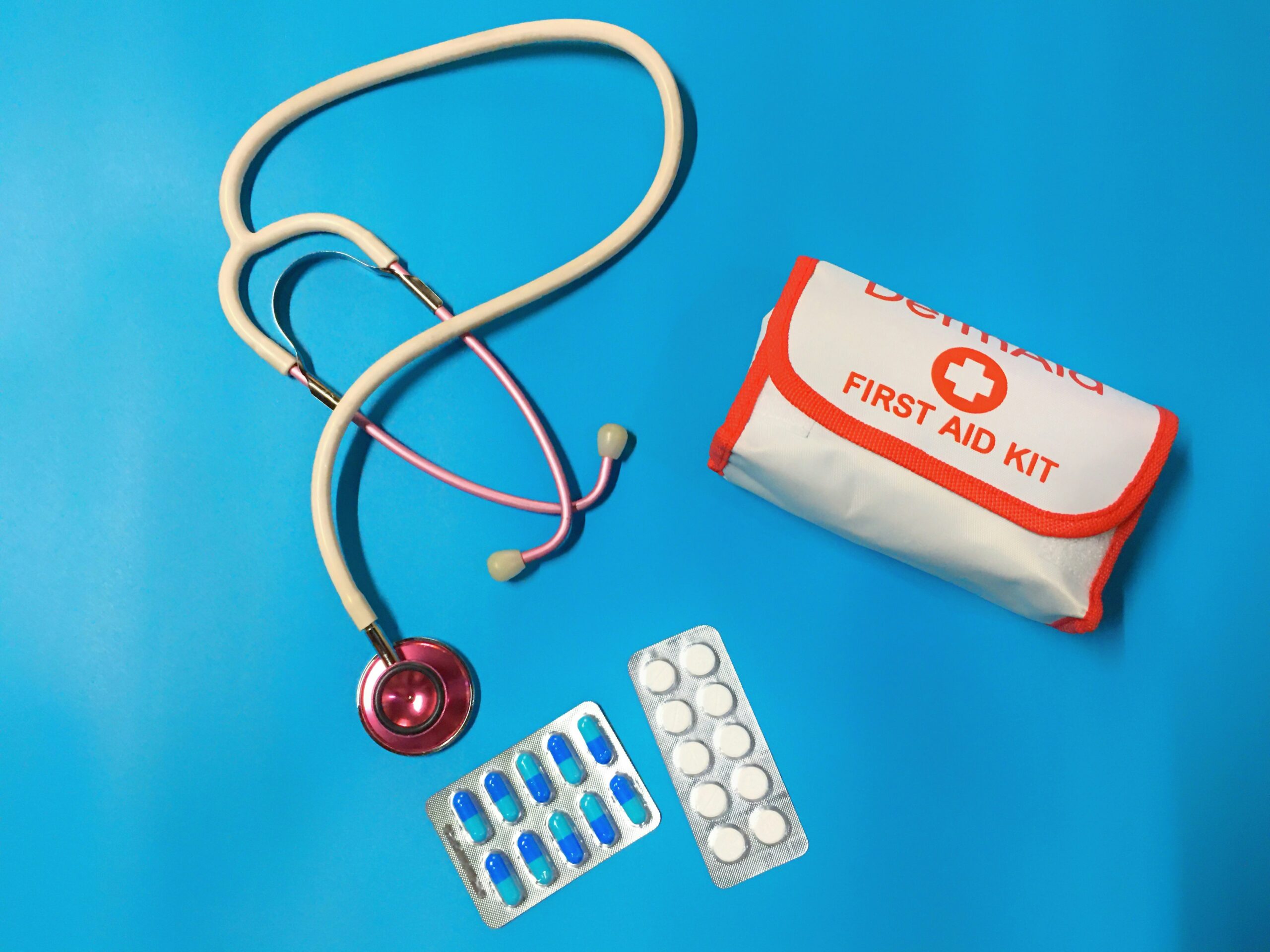
Diseases of the pancreas, among which we distinguish tumors or diabetes![]() , result from a disordered function of the hormone secreted by the pancreas. The best-known disease of the pancreas is diabetes mellitus, caused by abnormalities in insulin secretion or tissue sensitivity to the hormone. The appearance of diabetes in a patient with chronic pancreatitis may be the first sign of cancer of this organ. Pancreatic cancer is a well-known complication of chronic inflammation of this organ, and it can be the first symptom of diabetes.
, result from a disordered function of the hormone secreted by the pancreas. The best-known disease of the pancreas is diabetes mellitus, caused by abnormalities in insulin secretion or tissue sensitivity to the hormone. The appearance of diabetes in a patient with chronic pancreatitis may be the first sign of cancer of this organ. Pancreatic cancer is a well-known complication of chronic inflammation of this organ, and it can be the first symptom of diabetes.
These include menstrual disorders, which are a common problem for women. In addition, fertility disorders or polycystic ovarian syndrome are included in this group of diseases. In general, diseases of the sex glands mainly affect fertility. However, other common symptoms associated with problems in this area include excessive hair, weight gain, and dermatological problems.
Depending on the symptoms present, the endocrinologist may order various tests. Due to the extensive range of actions of the endocrine system and the influence on almost all processes in our body, a problem or disease that affects a patient may require a multidisciplinary approach. Additional assistance from a gynecologist or diabetologist can expedite a proper diagnosis. The most commonly ordered tests by an endocrinologist include:
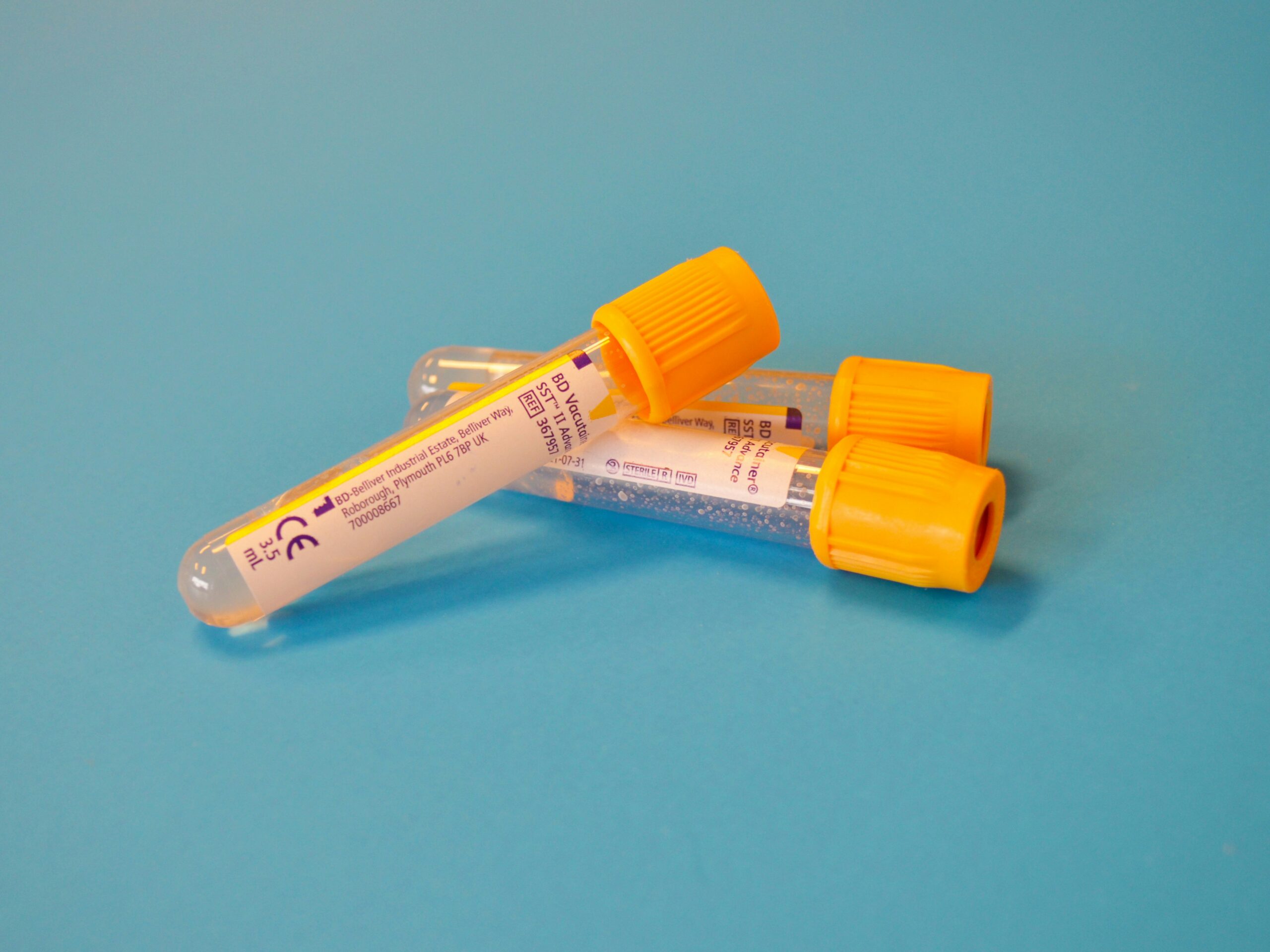
In the case of endocrine disorders, hormone levels in the blood are determined first and foremost. Thyrotropic hormone levels are determined to assess the metabolic state of the thyroid gland. Blood tests can also examine sex hormones, pituitary hormones, glucose, cortisol, and insulin levels.
An endocrinologist may order an ultrasound of the thyroid gland. This examination helps diagnose thyroid enlargement, inflammation, and tumors within the gland. Abnormalities seen on imaging can clarify the cause of hormonal disorders.
Histopathological examination is a diagnostic test that involves microscopic evaluation by a doctor specializing in pathomorphology of a piece of tissue taken from a patient. It allows the doctor to detect the nature of lesions that affect the cellular structure of tissues and organs.
An endocrinologist is a doctor who specializes in the functioning of the endocrine glands and dysfunctions within them. Endocrinology is the science of the functioning of endocrine glands, glands that produce substances and secrete them directly into the blood. Disorders of the endocrine glands cause endocrine abnormalities. Too little or too much concentration of particular hormones can cause problems in daily functioning and diseases. Endocrine disorders can cause various symptoms. Diseases associated with abnormal hormone levels include diabetes and thyroid disease. An endocrinologist can order multiple tests to detect the causes of existing symptoms.
Table of Contents
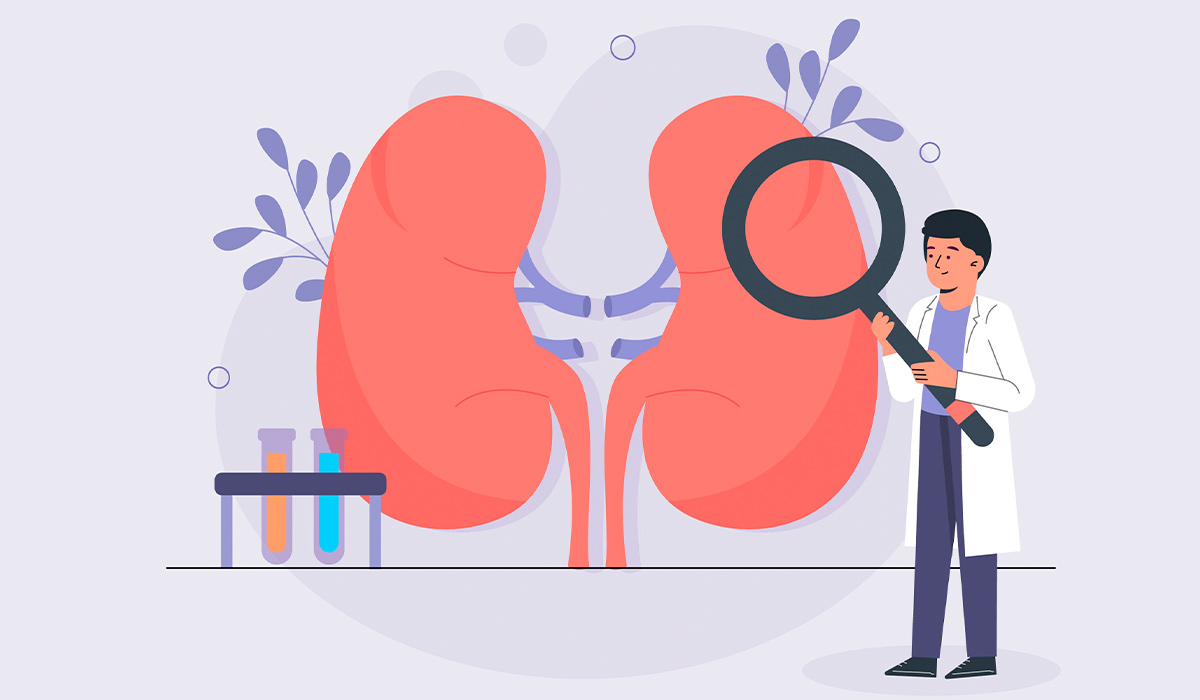
Adrenal fatigue is a medical condition in which the adrenal glands do not produce enough hormones to function properly. Check… read more »
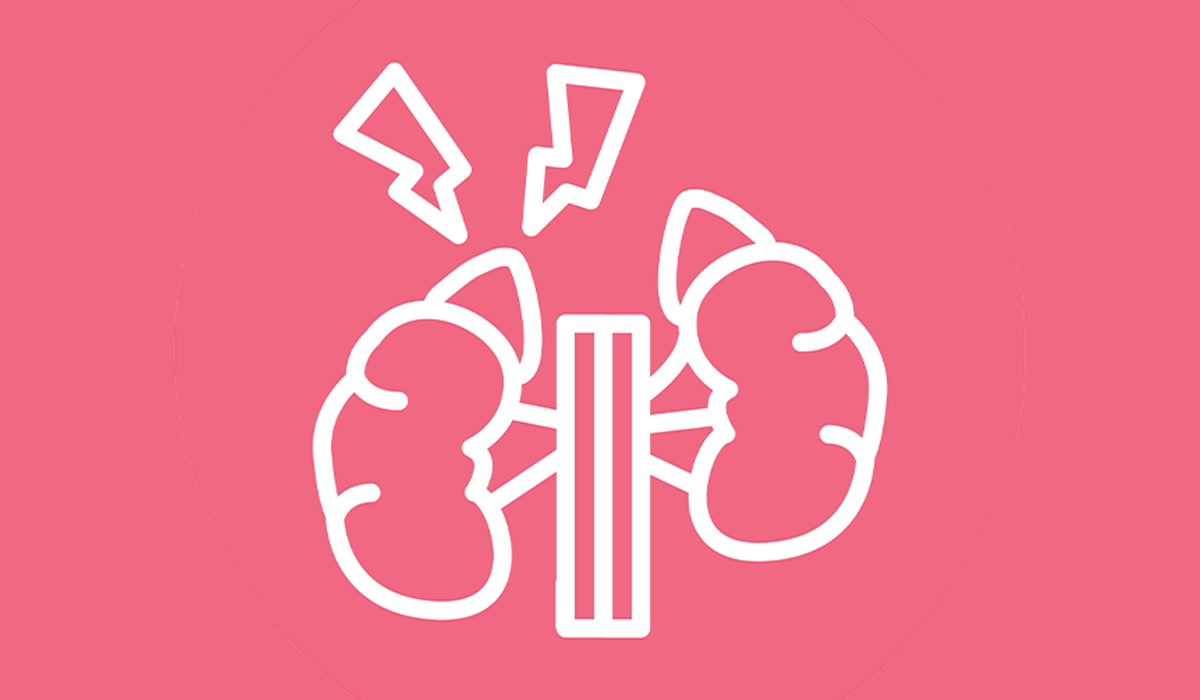
Addison's disease is a condition caused by a long-term deficiency of adrenal cortical hormones. The disease can be dangerous. Find… read more »

The thyroid is an endocrine gland. What hormones does it produce? Learn what are most popular thyroid diseases and what's… read more »

Hyperthyroidism is a condition in which the body produces too many hormones. This causes various symptoms and complications. Check out… read more »

Hypothyroidism is a disease caused by insufficient levels of hormones produced by the thyroid gland. Find out, what are the… read more »
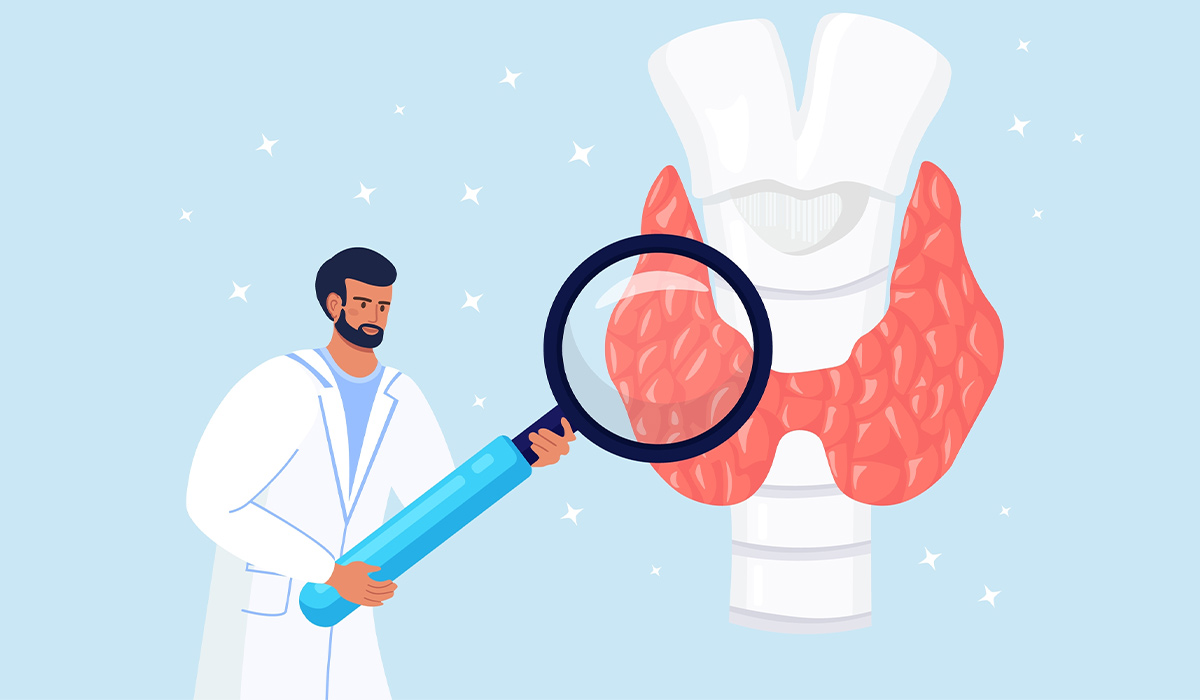
The thyroid is a small organ whose hormones regulate the body's metabolism. Check what are the signs of thyroid problems.… read more »

Cushing's syndrome is a set of symptoms caused by excess glucocorticoids in the body. What are the causes of the… read more »

Also known as Hashimoto's thyroiditis and chronic autoimmune thyroiditis, Hashimoto's disease is an autoimmune condition that causes the immune system… read more »
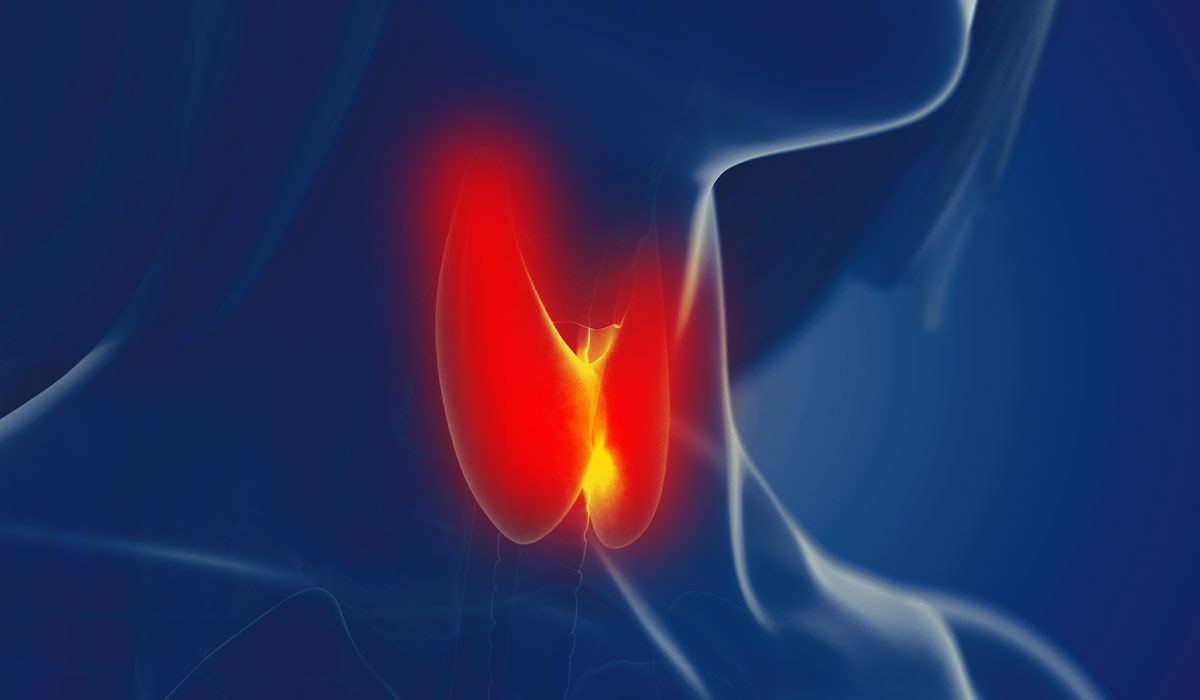
Goiter is an enlargement of this gland. It is not a disease itself, but rather a symptom of a medical… read more »